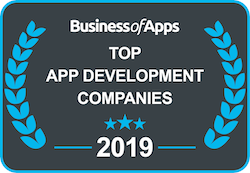As experienced developers, one of the first questions we are often asked by new clients with an app idea is 'how much will my project cost?' This is always tricky because without much detail we are unable to provide an accurate quote. In order to provide an accurate quote, most app development companies will request a Mobile App Requirements Brief. This is a document that clarifies all your app's features and functionalities.

How to estimate the cost of the app idea:
The first thing to be aware of is that the more complex your app, the more expensive it will be to develop because it requires more hours to build. For example, the difference in time between developing a simple content-based app compared to a complex gaming app can vary dramatically, from £20,000to well over £100,000. This is because you are paying for the developers time, not the final product or software itself. So, by clarifying the purpose of your app and what you want it to do, which platform you want it built on and who your target demographic will be, your app developers should be able to provide an accurate estimation of mobile app development costs.
Factors that affect the mobile app development costs:
1. The complexity of your app idea
When kickstarting your project, you need to define what the app needs to do and clarify how complex these features/requirements are. Will your app require simple/basic functionality, or will the features be more complex? The more complex your requirements are, the more hours your developers will have to work on your product and consequently, the more money it will cost you. Here’s a list of more complex apps that your idea may fall into:
- Data consumption apps
- Login apps
- Social networking apps
- E-commerce apps
- On-demand apps
- Marketplace apps
- Gaming apps
2. Android vs. iOS?
The platform you choose to launch on can have a big impact on the mobile app development costs. Since iOS and Android use different languages, developing both doubles the cost. If you are looking to keep the cost down, you may want to consider launching your app on one platform only, for example, iOS or Android. iPhones and iPads still dominate the market in the UK and the US so we often recommend launching on iOS first and then developing an Android app afterwards. Alternatively, a hybrid app built using HTML5, which is cross-platform may be a viable solution as hybrid apps, despite limitations in regards to functionality enable you to develop for Android and iOS in a single code-base, which can reduce the mobile app development costs dramatically. To help you decide which platform is suitable for your app, have a read through this article; ‘The Pros and Cons of Native, HTML5 and hybrid apps’.
3. Features and functionality
Once you have decided what platform to use, it is important to think about the smaller details. In terms of the app’s functionality, think closely about the user journey. Does the app need a login feature or a screen that enables users to create a personal profile? Does it need a messaging service or a GPS location tracker? These features all take time and more importantly, money. There are no exact figures for how much different features will cost as they will differ between projects and development companies. Again, you must remember that you’re not paying for the features themselves, you’re paying for the development time it takes to build the features, which has the biggest impact on cost. Here are a few features that typically fall on the higher end of the development cost scale:
- Social media integration- allowing users to share content within the app
- E-commerce- ensuring that payments are processed securely
- User profiles- users have the capacity to register, login, and update their profile
- Databases- an app that stores third-party data
- Servers- are you paying for your developer’s servers?
- 24/7 support- do you require continuous support and maintenance?
Features such as third-party integrations and a backend admin panel are also additions that can be costly to develop. The backend is often the most over looked part of the app, but is key to the overall success of the product. From the backend admin control panel, you can manage the app, content and users. Rather than using an open-source CMS, Red C develop all backend systems bespoke to your requirements. We use a Symfony framework to ensure it is secure, scalable and robust. Depending on access levels, the amount of information the database needs to store, and its complexity, the backend system can cost from £5,000 to £30,000 to build.
It is also important to bear in mind that taking payments within your app can be expensive, especially if you are considering using external payment platforms such as Paypal or Stripe.
We recommend that the first version of any app should be stripped back to just the essential features, to ensure it is approved by the store during the submission process and to keep the mobile app development costs down. This is called the MVP (Minimum Viable Product), it is an app with the minimum functionality possible whilst still providing a solution for users. Once you have decided on your app’s basic functionality it will be easier to provide a good idea of how much your project will cost.
Discovery and define
Red C offers a Discovery and Design package which acts as a useful pre-investment. This involves carrying out detailed user research and using this to create a mock-up of your app, including sketches, wireframes, and a UI and branding kit. We then put these together to create an interactive prototype that shows your apps basic functionality. This provides a valuable insight into what the apps will look like and how it will work. More importantly, it is also a way to gauge an estimate of how much it will cost to build.
4. Don’t forget about marketing and maintenance
Marketing your app is also essential, due to the competitive nature of the App Store. Therefore, you should set aside 30% of your total investment for marketing your app. Don’t forget, that updates and maintenance will also be required beyond development, so remember these additional mobile application development costs. (Take a look at Red C’s App+ service here.)
To summarise, mobile app development costs will depend on a number of factors. Beyond this article, the Red C team have a wealth of experience and are more than happy to discuss the estimation process further with you. Get in touch with Red C today so we can work with you to finalise your requirements and provide you with an estimated cost.



